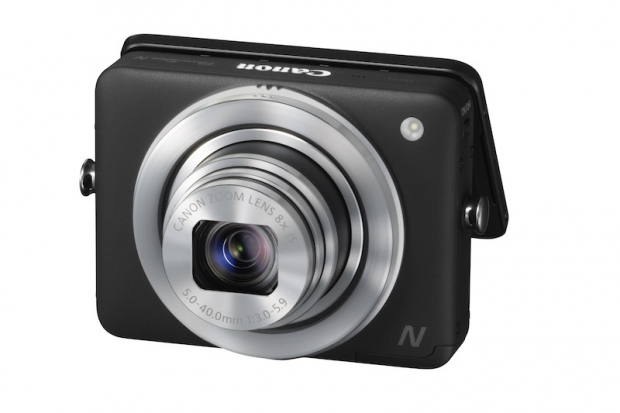
Willis the dog, taken by Tom (aged 4)
Gosh photographers can be a funny bunch. A little while ago I stumbled onto a forum thread where someone had asked if he weren't the only person to refuse to lend kit to friends if they asked. The vast majority of the answers were in the 'Hell no! I never I lend my kit to anyone!' camp.
The responses were generally point-blank refusals, not even conditional considerations. One guy even went so far as to say that his wife is banned from so much as touching his cameras, let alone using them. I sat there goggle-eyed with disbelief and quickly went to find myself some photos of puppies or kittens to remind me that the world isn't really such a dismal and mean-spirited place.
The puppies and kittens obviously did the job, because I didn't think about this peculiarly possessive discussion until this week, when two events reminded me of it.
First, on Thursday I was editing some photos when my four year old nephew, Tom, sidled up to me and asked if he could have a go at taking some photos, too. I was so thrilled that he was interested in picking up a camera that I nearly knocked him over as I leapt from my seat to fetch my gear.
I flicked my dSLR in auto-mode (he is only four, after all), told him he had to walk and wasn't allowed anywhere without me, showed him to look through the viewfinder and which button to press, then hung it around his neck and we went off to explore. Twenty minutes later he'd photographed mum, dad, big sister, me, and the dog. He was thoroughly proud of himself.
Meanwhile his older sister had lost interest in her bead-threading activity and was clamouring for a go, too.
The same rules applied to her, and she took off to photograph pretty much the same things, less the photos of herself and plus some of plants in the garden.
Within half an hour I had two young'uns interested in photography. If I'd have been preciously fanatical about my kit, what were the chances that I'd have let two sticky-fingered kids loose with it? How would they have had the opportunity to experience the excitement that's taking a photo and letting everyone else see the world the way that you do? Yes, I laid down some ground-rules with them and I might have thought twice about it if I didn't think that they would treat my camera appropriately, but I can promise you that the warm and fuzzy feeling I got from watching them enjoy themselves far, far outweighed any jitters I might have had from letting them use my camera. This was their opportunity to learn and I didn't think that I could be selfish enough to deny it them.
(I could sit in my psychologist's armchair now and suggest that it is only by allowing children access to valuable and fragile objects that they learn to appreciate them properly; but I'll leave you to ponder that one in your own time.)
Then on Saturday evening I received a Twitter message from someone who's looking to buy her first dSLR. She wanted a bit of advice. I left the technical side of things to Haje–he's already written about that, and covered it extensively. Instead, I go for slightly more practical hints, for example to hold in your hands every camera that you're considering buying. It needs to feel comfortable; you need to be able to imagine yourself going out and using it and enjoying it. Photography is meant to be fun, after all, and it's a bit late when you've been shooting with your 60D for a few weeks and you realise that it makes your wrists ache.
If you know someone who owns a camera that you're considering buying, ask them pretty-please if you could have a go with it to see if it suits you. In fact, I would go as far as to actively consider investing in the same system as that which your friends and family might use. If you are a trusting and respectful group of people, you have the opportunity to borrow from and lend to each other all sorts of interesting bits and pieces as your equipment stashes grow.
When you're just starting out and your resources–both financial and physical–are limited, that can be heaven-sent. But years later, it still comes in useful. Last summer, my bacon was well and truly saved by a fellow photographer who leant me his camera when mine decided that it just wasn't going to play nicely with some studio lights. Without his trust and his generosity, I would never have been able to complete a scheduled shoot and it would have left me in a very difficult situation with some deadlines. I'm still grateful to him now, and should he ever need a similar favour from me, I'll help him out.
If for one moment you think that I'm bats enough to lend my camera to just anyone without any thought as to how they'd treat it, I promise you I'm not that nutty. My equipment might be insured, but I'm not in the habit of tempting a claim. (Your gear should be insured, too. If it isn't, go sort it, right now.) And if I were in need of it myself when she or he wanted to borrow it, I'd have to decline. But there has to be some give-and-take in life; if I think that they'll respect my gear and it isn't going to end up in pawn shop in Moss Side or at the bottom of the Thames, then I'm happy to lend. For no other reason, I don't know when I might need the favour returned.
Cameras are incredible things. Expensive things, too. But they're just that: things. There's a key element in the light+camera=photograph equation, and it's the photographer using the camera. We can't replace our creativity and we can't replace ourselves, but we can replace our cameras. So why not be a little more giving? It can't hurt that much, can it?







